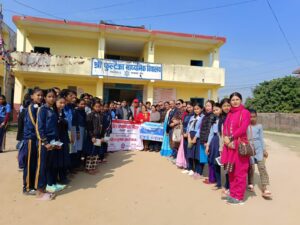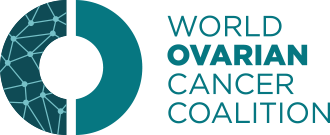An interview with the Nepal Cancer Relief Society (NCRS).
25 August 2025
Tell us about how NCRS was started.

The then Shah royal princess, Jayanti Shah, witnessing the deaths of many family members due to heart disease, began working to help individualssuffering from heart conditions and to provide affordable heart treatment to the people of Nepal. Additionally, she recognized that cancer is one of the non-communicable diseases with the highest mortality rate in Nepal. To prevent the spread of cancer and combat the disease, she established the Nepal Cancer Relief Society (NCRS) in Bikram Sambat 2039 (1982-83 AD). Jayanti Shah is the granddaughter of King Tribhuvan, the eldest daughter of Prince Basundhara and his eldest wife, Helen Shah. Following her, the leadership of the NCRS has included the late Dr. Anjani Kumar Sharma, Karna Shakya, the late Hari Prasad Poudel, Divakar Raj Karnikar, Jeet Bahadur Shrestha, Lokendra Kumar Shrestha, and currently Mahesh Shrestha.
What are your main priorities and programs supporting those affected by ovarian cancer?
Nepal Cancer Relief Society (NCRS) focuses its work primarily on the area of prevention. Recently, on the occasion of World Cancer Day 2025, the NCRS participated as a voluntary organization at the request of the Government of Nepal in the HPV vaccine campaign conducted for girls aged 10 to 14 across the country. In this campaign, volunteers from the NCRS’s 48 district branches were stationed at vaccination centers to provide necessary support, guidance, and facilitation.
Additionally, during the campaign, most of our branches including those in Chitwan, Kavre, Kaski, Surkhet, and Kathmandu organized awareness programs about the vaccine. Beyond these campaigns, the central office and district branches regularly conduct free VIA tests, Pap smears, reproductive health screenings, and awareness programs on cervical cancer for women. We are currently hosting a podcast to raise awareness about cancer. Although raising awareness about women’s health particularly reproductive health is extremely challenging due to Nepal’s cultural traditions, values, limited education and environment, Nepal Cancer Relief Society has been continuously working on this since its establishment.
What are the most significant challenges facing your community when it comes to ovarian cancer?
As I have mentioned above, due to Nepal’s religious and cultural traditions, values, and limited education, discussing women’s health especially reproductive health remains a significant challenge. Cultural stigma often prevents women from recognizing symptoms or seeking timely medical care, contributing to delayed diagnosis of ovarian cancer. By the absence of national screening programs and limited access to specialized care, particularly in rural areas.
Overall, cultural barriers, low awareness, financial constraints, and inadequate healthcare infrastructure make the prevention, early detection, and treatment of ovarian cancer in Nepal particularly challenging.
Can you share a moment, initiative, or achievement your organization is particularly proud of in your work with ovarian cancer?
Since its establishment, Nepal Cancer Relief Society (NCRS) has worked extensively in support of cancer patients, and its programs have focused
particularly on women’s health, even though this sector remains highly challenging in Nepal. Through a collaboration with Nepal Airlines, NCRS provides recommendation letter for discounted airfare for cancer patients traveling to India for treatment, benefiting 600 to 700 patients annually. This has provided significant relief to patients, and to date, thousands of cancer patients have utilized this facility.
Similarly, the central office and district branches have continuously conducted awareness programs on cervical cancer, uterine prolapse, and infections, as well as screening activities such as VIA tests and Pap smears. In this context, participating in the 2025 HPV vaccine campaign in collaboration with the Nepal government was a notable achievement for the Society. During this campaign, 13,000 adolescent girls across Nepal were vaccinated, and the Society played a key role in facilitating this effort.
You can learn more about the NCRS on their website: https://ncrs.org.np/
